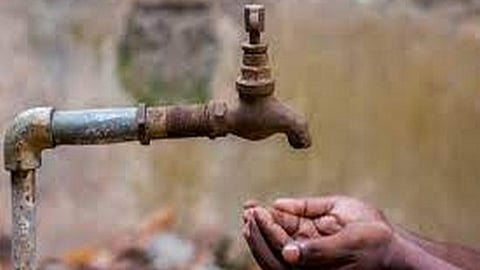

BENGALURU: Despite Chief Minister Siddaramaiah’s push to encourage private apartments to use treated water to ease Bengaluru’s water demand, little progress has been made.
Though newly-constructed apartments are using treated water, lack of prescribed usage and enforcement has made little impact.
The Karnataka State Pollution Control Board (KSPCB) and Bangalore Water Supply and Sewerage Board (BWSSB) have been unable to take tough decisions in enforcing the use of treated water in existing apartment complexes and commercial complexes. This inaction has led to a rise in water demand, continued contamination of water bodies and groundwater pollution. KSPCB officials admitted that while efforts are underway, progress is far slower than needed.
Following the budget announcement, KSPCB introduced a single-window system to clear proposals and simplify the procedure to obtain clearance under the Ease of Doing Business initiative. However, officials admit that full implementation will take some more time as synchronising all government agencies under one platform for projects takes time.
KSPCB is also moving slow in addressing the water quality of water bodies in the state. While real-time water quality measurement stations and environmental laboratories are being set up, experts and citizens point out that it is too late.
They also stated that little is being done to clean Vrishabhavathi Valley, which contains most of Bengaluru’s sewage. A KSPCB report on pollution levels in water bodies across the state shows the quality of water as poor and unfit for consumption or irrigation.
The forest and environment department faces similar challenges, with human-wildlife conflicts on the rise. The government has been unable to take stern measures to control encroachment and undertake tribal relocation programme.
Increasing human intervention -- through road construction, power lines, and pumped storage projects is exacerbating conflicts. Though the government sanctioned funds for rail barricades, procurement has not been addressed. Strengthening elephant corridors has been largely ignored, and buffer zones around forests to limit colonisation remain poorly maintained, allowing further encroachment.
The proposed Honnikeri Reserve and Blackbuck Sanctuary in Bidar is yet to materialise. However, the formation of an elephant and leopard task force was a good idea, forest department officials said. The government in this budget should announce methods to strengthen it by permitting the use of technological interventions and smart tools.
The officials are looking for more control in conflict-prone areas, rather than depending on local municipalities and police for support. The department is also looking for an increased allocation to the department to ensure timely payment of wages to watchers and take up conservation works in forests, like deweeding and habitat improvement.
“We do not want money to set up artificial water bodies, instead the money should be allocated for conflict mitigation and habitat improvement. Funds should be allocated so that compensation awarded to aggrieved families and farmers is released immediately and not kept pending for 5-6 months,” said a forest department official.